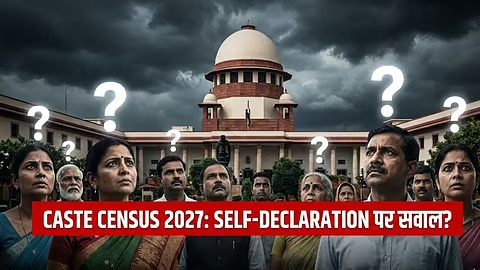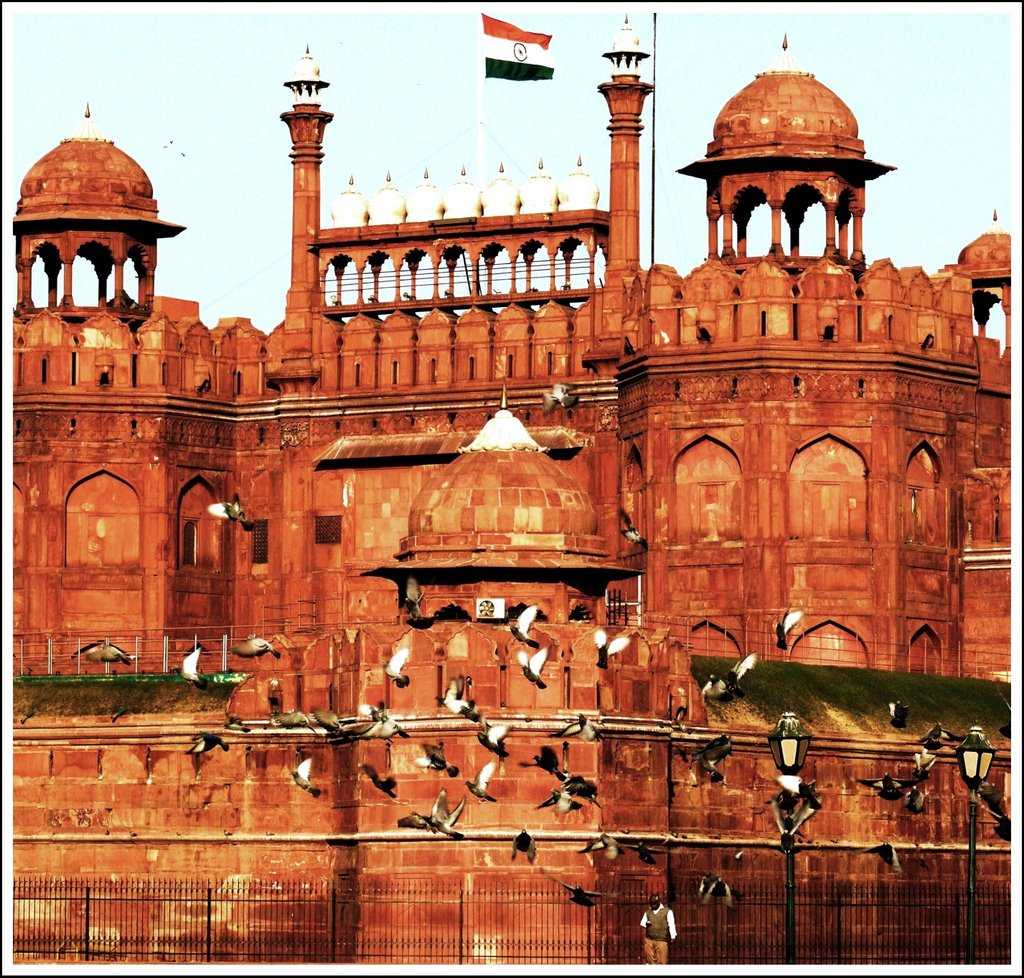@JUDGMENTTAG-ORDER
B.H. Marlapalle, J.@mdashInsolvency Petition No. 3 of 1998 came to be filed u/s 6(b) of the Provincial Insolvency Act, 1920 (hereinafter referred to as the said Act), against the present petitioner before the learned civil Judge, Senior Division, Ahmednagar on or about 28th November, 1998. In the said Insolvency Petition an application at Exhibit-32 was filed by the present respondent on 13th November, 1998 and though the same was opposed by the present petitioner, it came to be allowed by the learned Judge of the Lower Court on 13th November, 1998 itself, by passing the following order:-
"Heard Advocate for both the parties. Request granted as prayed for on depositing necessary charges".
By the said order, the application at Exhibit-32 came to be allowed and a public notice regarding the pendency of the Insolvency Petition was directed to be published in some of the newspapers like Maharashtra Times, Sakal, Kesari, Lokmat and Tarun Bharat etc. which are published from Mumbai, Pune and Ahmednagar. Aggrieved by the same order, the petitioner has approached this Court.
2. The petitioner was heard on 18th December, 1998 and, with an intention to bring the parties to an amicable settlement, the matter was adjourned so as to enable the learned Counsel for the petitioner to file a schedule of payments in respect of the outstanding amount as per the agreement dated 24th July, 1997 and this was without prejudice to the challenge to the agreement in Special Civil Suit No. 441 of 1997. The matter was fixed on 13th January, 1999 so as to enable the learned Counsel for the petitioner to file the schedule of payment. On 15th January, 1999 the learned Counsel sought further four weeks time to file the schedule of payment. The matter was fixed on 10th February, 1999, 18th February, 1999 and 22nd February, 1999 and today the learned Counsel for the petitioner submits that the matter be decided on merits and the petitioner would not be in a position to file the schedule of payment, in respect of the amount due to be paid to the present respondent.
3. Shri Shah, learned Counsel appearing for the petitioner sic respondent has raised a preliminary objection to the maintainability of this petition. He has relied upon the provisions of section 75(1) read with section 19(2) of the said Act and submitted that a statutory appeal has been provided against any order passed by a subordinate Court in exercise of Insolvency jurisdiction and such an appeal lies before the District Court. Shri Shah, therefore, submitted that when a statutory appeal is provided under a special statue, writ petition under Article 227 of the Constitution of India should not be entertained and such a petition is not tenable.
4. Shri Gursahani, learned Counsel for the petitioner submitted that the Insolvency Petition has not yet been admitted as required u/s 18 and notice to the petitioner has not yet been issued as required u/s 19(1) of the said Act and the order passed, even presumably u/s 19(2) of the said Act, is an interlocutory order and if the scheme of sections 4 and 5 of the said Act is considered the provisions of appeal, as provided u/s 75(1) are only in respect of decisive orders i.e. the orders of the nature of finality and not interlocutory orders. It was further urged that unless the petition is admitted and notices are issued to the debtor, any order passed by the learned Judge of the subordinate Court on any application cannot be called an order in a strict sense and an appeal u/s 75(1) against such an order is not tenable. Shri Gursahani also referred to Schedule I of the Act and submitted that the provision of appeal is only in respect of the matters enumerated in the said schedule and other orders are not covered u/s 75(1) of the said Act. Finally, the learned Counsel referred to the amount of recovery which is about Rs. 5,08,63,337/ - with interest and submitted that even if it is presumed that an appeal is tenable, the District Judge has no pecuniary jurisdiction to entertain an appeal in such a claim. Therefore, Shri Gursahani relied upon a judgment of the Madhya Pradesh High Court in the case of
5. Shri Shah, the learned Counsel for the present respondent disputed the contentions that the insolvency petition has not yet been admitted and the petitioner has not yet been issued notice u/s 19(1) of the said Act. He also relied upon a judgment of the Division Bench of the Rajasthan High Court in the case of
6. The only question for consideration of this Court is, whether the order impugned in this petition is appealable and if it is appealable whether a petition should be entertained when a statutory remedy of appeal is available to the petitioner. Section 75(1) of the said Act reads as under:-
"75(1) The debtor, any creditor, the receiver or any other person aggrieved by a decision come to or an order made in the exercise of insolvency jurisdiction by a Court subordinate to a District Court may appeal to the District Court, and the order of the District Court upon such appeal shall be final."
7. A perusal of the said sub-section indicates that an appeal lies against an order made in exercise of insolvency jurisdiction by a Court subordinate to District Court, to the District Court and the order of the District Court, upon such an appeal, shall be final. Further, under second proviso of the said section, a revision has been provided against the order passed by the District Court in such an appeal. As against this, sub-section (2) of section 75 of the said Act provides that any person aggrieved by any decision or order of a District Court as is specified in Schedule-I come to or made otherwise than in appeal from order made by subordinate Court, may appeal to the High Court. It is, therefore, clear that the provisions of sub-section (1) and sub-section (2) of section 75 are independent of each other. Sub-section (4) of section 75 provides for limitation for appeals to District Court or to the High Court viz. thirty days and ninety days respectively.
8. In the instant case, the learned Judge of the Insolvency Court had passed an order at Exhibit-5 on an earlier date and directed publication of notice to other creditors and this was published in daily Nagar Times. The present respondent was of the view that a notice, which was published at its instance in daily Nagar Times, had a very limited coverage and so as to inform to all the creditors of the present petitioner, the respondent company filed an application at Exhibit-32 seeking a second order for publication of notice to the creditors and this was allowed. It is, thus, clear that the order passed at Exhibit-5 as well as at Exhibit-32 is an order u/s 19(2) of the said Act and the first order passed below Exhibit-5 u/s 19(2) has remained unchallenged. The words "an order made in exercise of insolvency jurisdiction by a Court subordinate to a District Court" means any order and will have to be given a wider interpretation and not a restricted interpretation limiting it to an order of final nature excluding an order of interlocutory nature. The words used in a statute must be given their natural meaning so as to read the scheme of the special statute in harmony and the restricted meaning, as sought to be placed by the learned Counsel for the present petitioner, will defeat the purpose of the provision of appeal as well as further provision of revision as provided under the second proviso to sub-section (1) of section 75. The judgment of the Madhya Pradesh High Court in the case of Gopal Prasad (supra) does not assist the case of the present petitioner in view of the facts and circumstances of this case.
9. The order passed at Exhibit-32 on 13th November, 1998, which has been impugned in this petition, is an appealable order u/s 75(1) of the Act and, therefore, statutory remedy of an appeal is available to the petitioner. The learned Counsel for the petitioner urged that even if such an appeal remedy is available, this Court has inherent powers of entertaining a writ petition under Article 227 of the Constitution of India if it is shown that the order impugned has been passed without jurisdiction or in violation of the statutory provisions. The judgment of the Supreme Court in the case of U.P. State (supra), relied upon by the Counsel does not support these contentions. It is well established that when a statutory remedy of an appeal is available to challenge an order, the writ Court should not entertain a petition under Article 227 and the parties must be left to take recourse to such an alternate remedy.
10. The Supreme Court in the case of
"It is no doubt true that when an alternative and efficacious remedy is open to a person, he should be required to pursue that remedy and not to invoke extraordinary jurisdiction of the High Court under Article 226 of the Constitution and where such a remedy is available, it would be a sound exercise of discretion to refuse to entertain the writ petition under Article 226 of the Constitution. In the present case, admittedly, the appellant has an alternative and equally efficacious remedy by filing an appeal before the Appellate Authority against the order of assessment and in view of such a remedy being available to the appellant, the High Court was right in dismissing the writ petition on the ground that the appellant has an alternative remedy available under the Bihar Sales Tax Act."
In the instant case none of the contingencies as set out by the Apex Court in the case of Whirpool Corporation (supra) are existing and the judgment in the case of Tin Plate Co. of India (supra) squarely covers the issue at hand, inasmuch as the petitioner before us has an alternative and efficacious remedy by way of an appeal u/s 75(1) of the said Act.
11. In the premises, the petition is not tenable in view of the alternate remedy of an appeal available u/s 75(1) of the said Act and hence the petition is rejected on this preliminary point itself without going into the merits of the rival contentions raised before this Court. The respondent Company is discharged from its undertaking given before this Court.
12. It is further clarified that if any question of limitation that arises in an appeal that the petitioner proposes to file before the District Court u/s 75(1) of the said Act, the learned District Judge may take into consideration the period of pendency of this petition.
13. At this stage, Mr. Gursahani moved an oral application to suspend the operation of this order for a period of ten days. The application is rejected.
14. Petition rejected.

